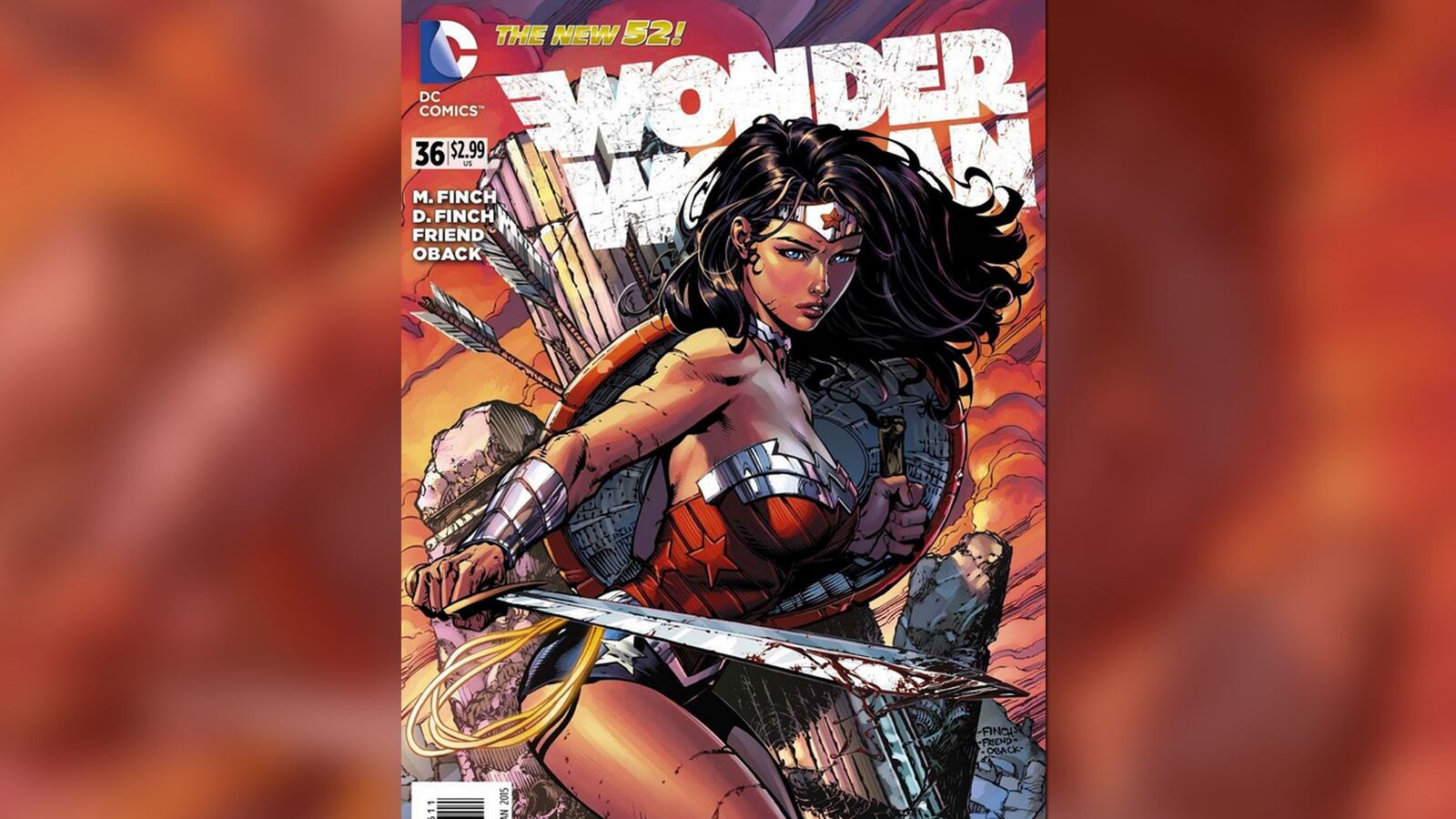For months now, I’ve been worried about Wonder Woman, ever since I learned that husband-and-wife team David and Meredith Finch were chosen to write the newest run of the most iconic female superhero of all time.
David is familiar to comic book readers for his award-winning illustrations of such characters as Batman, Superman, and the X-Men—and his nearly pornographic versions of every woman he’s ever drawn (just one example: in 2011, he faced criticism for his sexist drawings of Wonder Woman in the Justice League). Meredith, if she is known to comic aficionados at all, is known for being David’s wife, though she has in fact written comics before—a few issues of a highly-sexualized Wizard of Oz spin-off from a minor publisher, all of which happened after she was announced as the new writer for Wonder Woman.
Can you imagine Superman being handed over to a writer just a notch above amateur? It simply wouldn’t fly—pun intended.
And while lack of experience doesn’t necessitate a shoddy product, it does give one an inkling of the respect that Wonder Woman is accorded by her publishers, DC Comics. Or perhaps they simply don’t think their readers care about all those pesky plot lines. Who reads comics for the articles, anyway?
But I told myself I was being pessimistic. “Give them a chance!” friends urged me. So I read up on what the Finches had planned.
In an interview with Comic Book Resources, David shied away from calling Wonder Woman a feminist, saying, “We want her to be a strong—I don’t want to say feminist, but a strong character. Beautiful, but strong.” While later trying to walk the comment back, Meredith qualified: “Because I don’t really have experience, I haven’t had a situation where I haven’t been able to do something because I’m a woman ... I know there are still some things going on in this day. But I feel like what she needed to be in the ’70s and ’60s is different than what she needs to be today.”
And what’s that , exactly? In a behind-the-scenes video posted by DC themselves, Meredith explained that by the end of their run, she hoped “people feel like they have an intimate connection with [Wonder Woman]… and that she’s their best friend.”
I need my best friend to sit on the couch and watch TV with me; I need Wonder Woman to save the world.
When the Finches’ first issue was released last week, I bought it immediately—and nearly threw it out just as fast.
[SPOILER ALERT]
On the cover, Wonder Woman resembles a 16-year-old model doing a pee-pee dance. Her first full scene is a shower sequence where she’s in a towel. She has ridiculous mood swings. Without any evidence or provocation, she attacks Swamp Thing—and then gets beaten in the only fight she has in the issue. Thankfully, Aquaman is there to save the situation and give her a pep talk, while she clutches a teddy bear. Her biggest worry isn’t Cheetah or the Silver Swan, but how to achieve the proper work-life balance. There are actually two characters that talk about misogyny and the subjugation of women, but they’re both evil amazons we’re meant to hate.
That comics are a bastion of sexism is a truism so banal it almost goes without saying. But it is particularly galling to watch the feminist superhero be treated in such a way. The Finches have made no small point of the fact that Meredith is one of only a handful of women to ever write Wonder Woman. “I love the idea that it's a woman writing a woman,” David said in an interview with USA Today, “because we're trying to appeal to more female readers now.”
Seeking to be celebrated for simply hiring a woman is tokenizing and offensive. From writer Gail Simone to artist Fiona Staples, there are incredible women already working in the industry. Let’s celebrate them. The Finch’s ideas of feminism, strength, and what appeals to women today seem retrograde, borderline misogynistic, and—to be frank—boring. Wonder Woman deserves better.
David, you wouldn’t call her a feminist? Funny. In your hands, neither would I.






